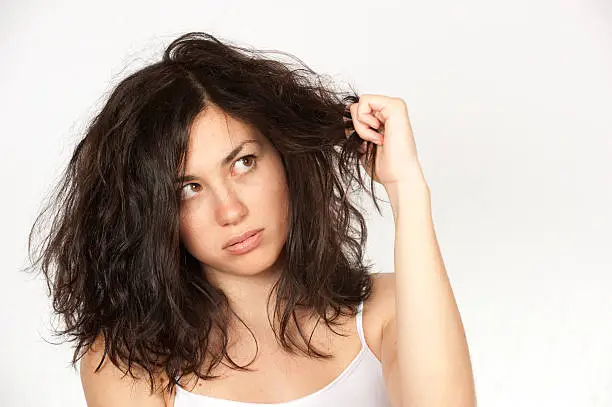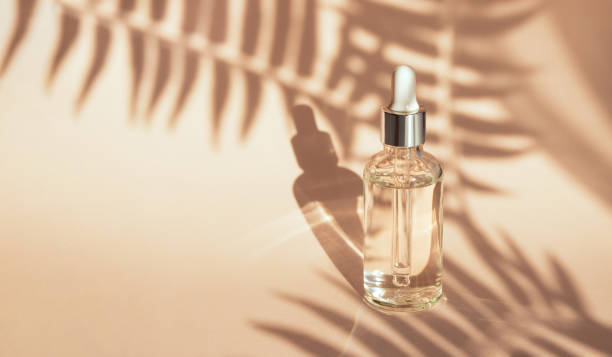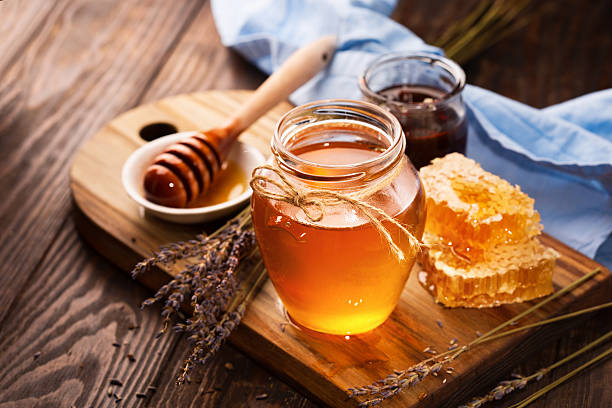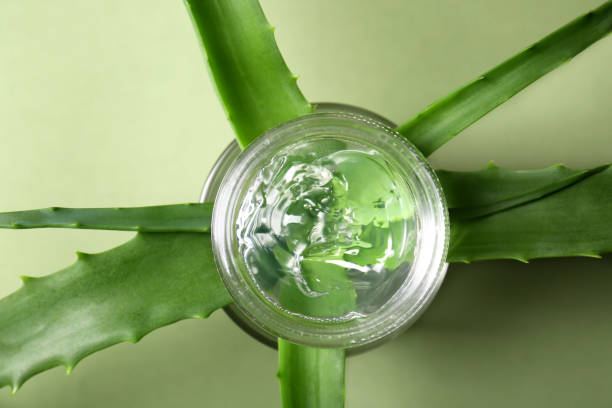Introduction to Humectants
The humectants are the hair care hero that most people don’t really know exists! These great ingredients go on stage to ensure that your hair remains moisturized, healthy, soft and shiny. But first of all, what are humectants, and why are they so crucial for your hair? Let’s explore what these moisture retaining substances are all about and how they contribute to the ideal hair moisture levels.
The Role of Hydration
Okay, now here’s where things start to get interesting and by interesting, I mean humectants and this lead us to why moisture balance is so important for hair. The hair also should be moisturized, and there is nothing wrong with it as the skin does. If hair lacks moisture, it can become brittle, bushy and split ends, but if it becomes greasy, hair will lose its volume and will appear lifeless. The aim is to take measures, which will not make hair look greasy and at the same time not damage the hair. Well, that is where humectants come into play because, in essence, they assist in maintaining the balance by pulling moisture into your hair from the air.

Types of Humectants
There are so many humectants in use today but the most popular ones common in hair care products and in our kitchen are glycerin, honey and aloe vera. These ingredients have been appreciated to give hair both hydro and moisturizing quality, but without making it oily.
How Humectants Work
Humectants are defined as water absorptive materials, since they have the ability to absorb water molecules present in its surrounding. If you use an applied humidifying substance in your hair it means that you are able to bring moisture from the air into the hair shaft. It also helps your hair to be taken care of for longer periods, as it is hydrated. However, it is necessary to state that this mechanism is effective enough in the case of a middle-range humidity level. The humectants can pull in excessive moisture when used in areas with high humidity, this results in frizz. In areas of little humidity, they may steal moisture from your hair leaving your hair even drier.
Advantages of using humectants for Hair
Humectants offer a range of benefits for your hair:
Hydration: It helps to maintain the moisture into the hair shaft and thus they are good in maintaining the moist of your hair.
Softness: Daily or frequent use of humectants leads to easy to handle and smoother hair.
Frizz Control: Most of the humectants have properties that allow them to regulate humidity and reduce frizz on the hair.
Improved Elasticity: When hair is well moisturized, it becomes more elastic, and therefore healthy and less likely to break easily.
Negative Impacts of Employing Humectants
While humectants are generally beneficial, they do have some downsides depending on the climate:
High Humidity: In humid weather, humectants can pull a lot of moisture to the hair, thus expands the cortex and leads to frizz.
Dry Climates: If used during very dry climate conditions, humectants will tend to dry hair further by drawing moisture from the hair.
Build-Up: This humectants particularly glycerin may form an accumulation of the product if washed off the skin.
Humectants for Various Hair Types
Humectants can be a game-changer for all hair types, but their effects can vary depending on your hair texture:
Straight Hair: Well, we know that humectants can give a moisture without making the straight hair look greasy or lackluster.
Curly Hair: Compared to straight hair curls are usually more dry and therefore using Humectant your curls will retain more moisture and the frizz will reduce.
Coily Hair: Those that have coily hair reap the most results from humectants since they have the natural tendency of being drier as compared to other hair types.
Glycerin as a Humectant
Science: Glycerin is one of the most effective humectants that you will come across and is widely used in hair care products. Because it has the capacity of retaining moisture, it is advisable for use in hydrating the hair.

Benefits: Glycerin help in making hair soft, shiny and moisturized. For best results, it should be used by individuals with curly and coily hair types because they require more moisture.
Disadvantages: In high humidity, glycerin is known to lead to frizz because it is able to pull moisture from the surrounding humid air. It also results in product accumulation if not washed out from the surface of the cloth regularly.
How to Use: Add glycerin with water and a carrier oil such as coconut oil or jojoba oil to make a skin spray. For its best performance, use on damp hair.
Ingredients & Measurements: Try 1 volume of glycerin, 2 volumes of water, and a couple of drops of any chosen carrier oil.
Honey as a Humectant
Science: It’s also sticky, which means that in addition to attracting moisture, it can hold it in place, which makes it ideal for use in hair masks and conditioners.
Benefits: Honey also contributes to the moistening, shiny and softness of the hair. It also contains antibacterial elements that can be beneficial to the head skin.
Disadvantages: Honey contains glue and can be difficult to wash off when the quantity used are high.

Jar of liquid honey with honeycomb inside and bunch of dry lavender over old wooden table. Dark rustic style, selective focus
How to Use: With honey mix some other ingredient that promotes hair growth and moisture such as coconut milk. Let it soak on the hair for fifteen to half an hour and then wash it off.
Ingredients & Measurements: Coconut milk and honey are especially useful when used with a ratio of half a cup of coconut milk with 2 tablespoons of honey.
Aloe Vera as a Humectant
Science: It is composed of approximately 99% water and therefore contains moisture which aids in the process of locking moisture to the scalp while on the other side aloe vera has been known to have allantoin which soothes the scalps. This is mainly because they have a soft texture thus suitable to be used throughout by all sorts of hair.
Benefits: Aloe vera helps to moisturize hair, grow hair, and soothes itchy scalps.
Aloe leaves and cosmetic gel on olive background.

Disadvantages: It may contain some residue if not washed properly after use is conducted on it.
How to Use: Raw aloe vera gel should be mixed with water on can also be applied on the hair and left on to condition the hair during the day.
Ingredients & Measurements: To make herbal inhalations, take fresh aloe gel – ¼ cup with ½ cup of distilled water. Use before blow-drying or styling your hair, for best results apply on damp hair.
Application of Humectants in Hair Care
But using these humectants in your hair care regime is not as hard as you may have thought. Whether you prefer store-bought products or DIY solutions, humectants can be used in various forms, such as:
Leave-in conditioners: Some of the common ingredients expected in a leave-in conditioner are humectants to give the hair a lasting moisture.
Hair masks: Useful for deep penetration of conditioning ingredients, humectantеними ориентированны на мастки с использованием компонентов, налаживающих процессCONDITIONING WITH HUMECTANTшутится следующим образом AM Eyeshadows: Deep penetration of conditioningHair mask with DIY honey and glycerin.
Styling products: There are gels and creams which contain humectants to make sure clients’ hair is locked in as it is being styled.
Safety Measure to be taken around Humectants
Here are a few things to keep in mind when using humectants in your hair care routine:
Climate: It is always important to take cognizance with the amount of humidity at your area. Humectants create frizz in high honey, and in dry weather, they bring more dryness to the hair.
Hair Type: The hair that can get oily easily will definitely not like the idea of having too much of a moisturizing formula , but the thick, curly hair is going to love it.
Product Build-Up: Pat your hair if you use humectant-containing products to minimize the build up by frequently washing your hair.
Ingredient Measurements
DIY recipes stress the raw importance of the right measures in selecting the right humectants for maximum benefits. Here’s a quick guide:
Glycerin: Try this ratio of glycerin to water as a moisture spray – 1:2.
Honey: Combining equal parts of honey and coconut milk; use 2 tablespoons of honey and ½ cup of coconut milk for your hair treatment.
Aloe Vera: For a leave-in conditioner mix aloe vera gel ¼ cup and water ½ cup.
FQA
Some of my clients ask if they can use the humectants every day.
Yes, but one needs to pay attention to the type of hair he or she has together with the climate. Maybe there will be some build-up or frizz if I use it every day and it’s pretty good at taming flyaways.
Can any hair type benefit from humectants?
Most of the time yes but for individuals with fine or oily hair these products should be used little as they might make the hair feel too heavy.
May I combine one humectant to another?
Absolutely! Glycerin, honey, and aloe Vera can be incorporated into your home made hair regimen to give your hair a moisture treatment.
Does the use of humectants increase hair growth or not?
Of course, humectants don’t make your hair grow longer on their own, but they prepare the perfect environment on your scalp for new hair to grow.
The best humectant for curly hair is glycerin.
Glycerin and aloevera are more helpful in curly hair type because they seal in moisture without making the hair feel heavy.
Can humectants cause frizz?
In high humidity, yes. That is for sure, and other properties and functions that humectants possess include ability to uptake undesirable amounts of moisture from the air and thus make hair swell while frizzing.
Conclusion
Humectants are crucial when it comes to the moisture balance that your hair requires to appear soft, silky, and none frizzy. Glycerin, honey, and aloe vera are very effective shed hair and can really make any hair shiny and irresistible. But it is advisable alway to consider your specific hair type and climatic conditions in the region to achieve optimal outcomes of the application.